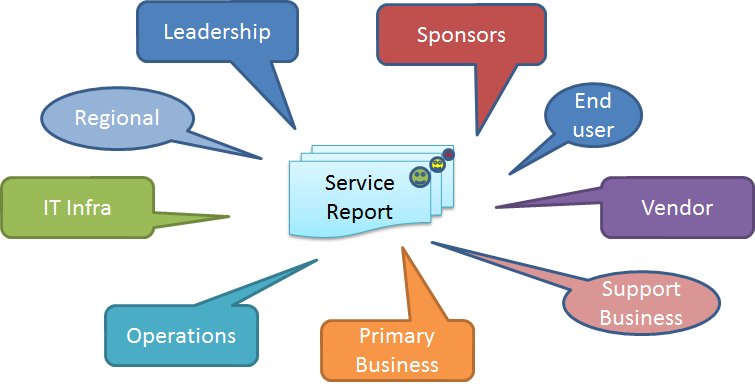Learning from Service Management
(previously published on LinkedIn dated January 2017)
During my stint in Support and Services engagements, I have been fortunate enough to work with some of the brilliant minds and ‘THINKing’
persons (Few of them will know why I wrote that way :-). My roles also
helped me to see different perceptions of the same service elements
designed for a specific need. I am trying to jot down below, in quite an
unstructured manner, some of the learning(s) as it comes to me to start
with. I might also drag them to add an intuitive or philosophical
touch. I can’t avoid that, except to state it ;-), so you might want to
read them again to shake them off if required. Please feel free to point
errors, and throwing different context where it might not be true. I
will be happy to learn from it and optimize this blog!
- The term “Service” is a mindset.

- And “Service Management” a framework. I visualize it like a steel framework of an under-construction building (civil engineering perspective).

- “Service Management” is also an organization culture, a common language to cut across different units (business and IT for instance).

- Service Management can and should be customized or tailored to an organization, similar to a building again.
- Service Management frameworks like ITIL or MSOF are not just for Information Technology (IT) or IT Infrastructure projects, it can be used for any Service organization.
- An organization adopting ITIL for their projects cannot be ITIL certified unlike CMMI or any other ISO certifications (many CXOs and senior management has this misunderstanding). Although many use this terminology to convey a sense of following ITIL in their internal process as well. Correct me if I am wrong.
- Business stakeholders (functional / non IT units) should make an attempt to understand that IT is only one part of the “Service Component”, even if entire process is performed using IT systems.
- Before any Service goes live, all aspects of the Service — IT / non-IT / Voice / Resources / Human Resources /etc. — should be designed well. Once a Service goes live, future changes should focus on Stability and Continuity of the existing service already “live” until the end of that particular Service using suitable Service Transition methodologies.
- A Service Management framework saves valuable time if understood and followed properly. Any attempt to tighten the framework (unless if there is a genuine business need) might end up breaking the “spirit” of the Service and causes operational overhead in managing changes to such Service
- Metrics and accurate data collection of the various processes play a vital role for managing the service. At the same time ‘subjective’ elements outside the metricized data points are important. A regular review and analysis of such ‘subjective’ elements can help evolve the metrics and there by the Service quality.
- Service Strategy and Service Design are often overlooked to the framework being adopted itself. It is important to visualize before a Service goes live, a simple flow, if possible start from the Service touchpoints and flowing backwards to THINK through on various service components that needs to be built / adapted / tailored.
- Service Operation roles are not necessarily designations of people who perform the functions. A single person might perform multiple roles like that of Incident Manager or Change Manager or there might be a need for more than one person to do the role of Incident Manager.
- Service Operation roles are also not hierarchical.
- If one wants to adopt ITIL or other framework to an already existing service, the best possible to create a façade of a framework would be to set-up and implement a communication management process. This can trigger other changes by the system to initiate the required components to be designed or adapted. Many follow ITIL in other process, but if communication to various touch points/stakeholders are not set-up appropriately, the processes can decay soon into an archaic framework.
- Which is the most important Service Operation process? This is a typical question to that can trigger an endless debate. But this question can help understand the context in a particular organization.
I
should say, I entered into Service Management roles by chance, not by
choice, but thanks to certain stalwarts and SMEs whom I was fortunate to
work with, and the organizations that adopted such a mindset and
culture, I cherish the roles I played and it definitely has changed my
outlook to any business engagement.
Follow My blogs at:
Sense And Balance @ Blogspot and Medium.com
Sense And Balance @ Blogspot and Medium.com



Comments
Post a Comment